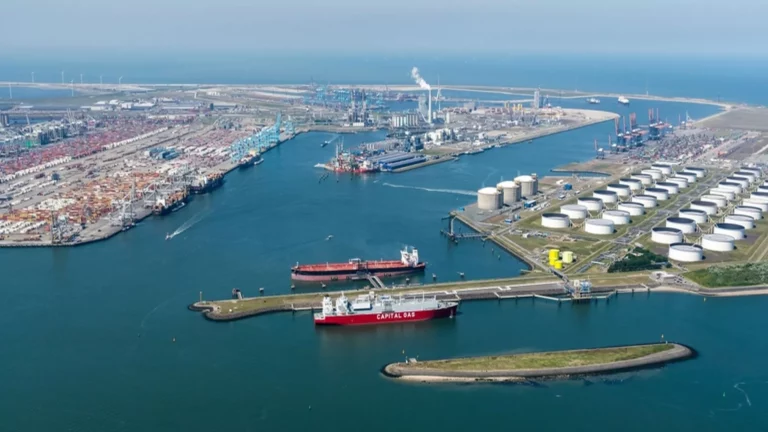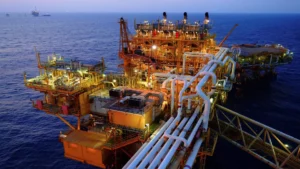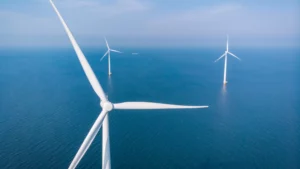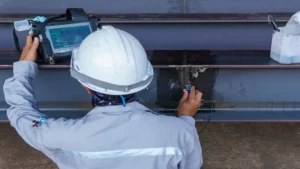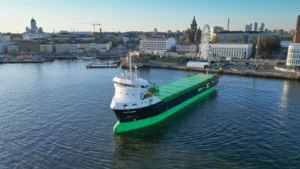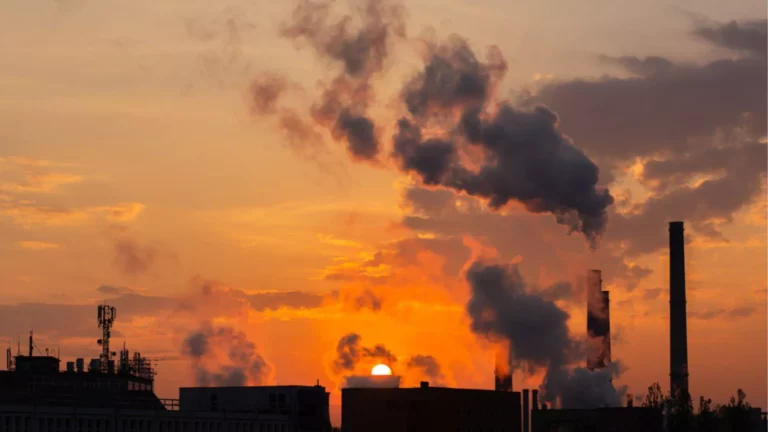The Port of Rotterdam has achieved a remarkable 10% decrease in CO₂ emissions during 2023, an achievement largely attributed to significant emissions reductions by its two coal-fired power plants in Maasvlakte, which emitted more than 2 million tonnes less than the previous year, representing a 38% reduction.
This year, the total electricity production from fossil fuels at the port’s five power plants was reduced by 20%, although refinery production remained constant due to robust demand, with a slight increase of 0.1 million tonnes in CO₂ emissions. Additionally, chemical industry production did not recover despite falling gas prices, contributing to a further 0.2 million tonnes (5%) decline in CO₂ emissions, the port authority reports.
Reduction of emissions in 2023
An important milestone reached in 2023 was that CO₂ emissions were reduced to levels last seen in the base year of 1990, with 20.3 million tonnes emitted, compared to 20.6 million tonnes in 1990. This underlines the port’s significant progress since 2016, the year in which the highest emissions were recorded.
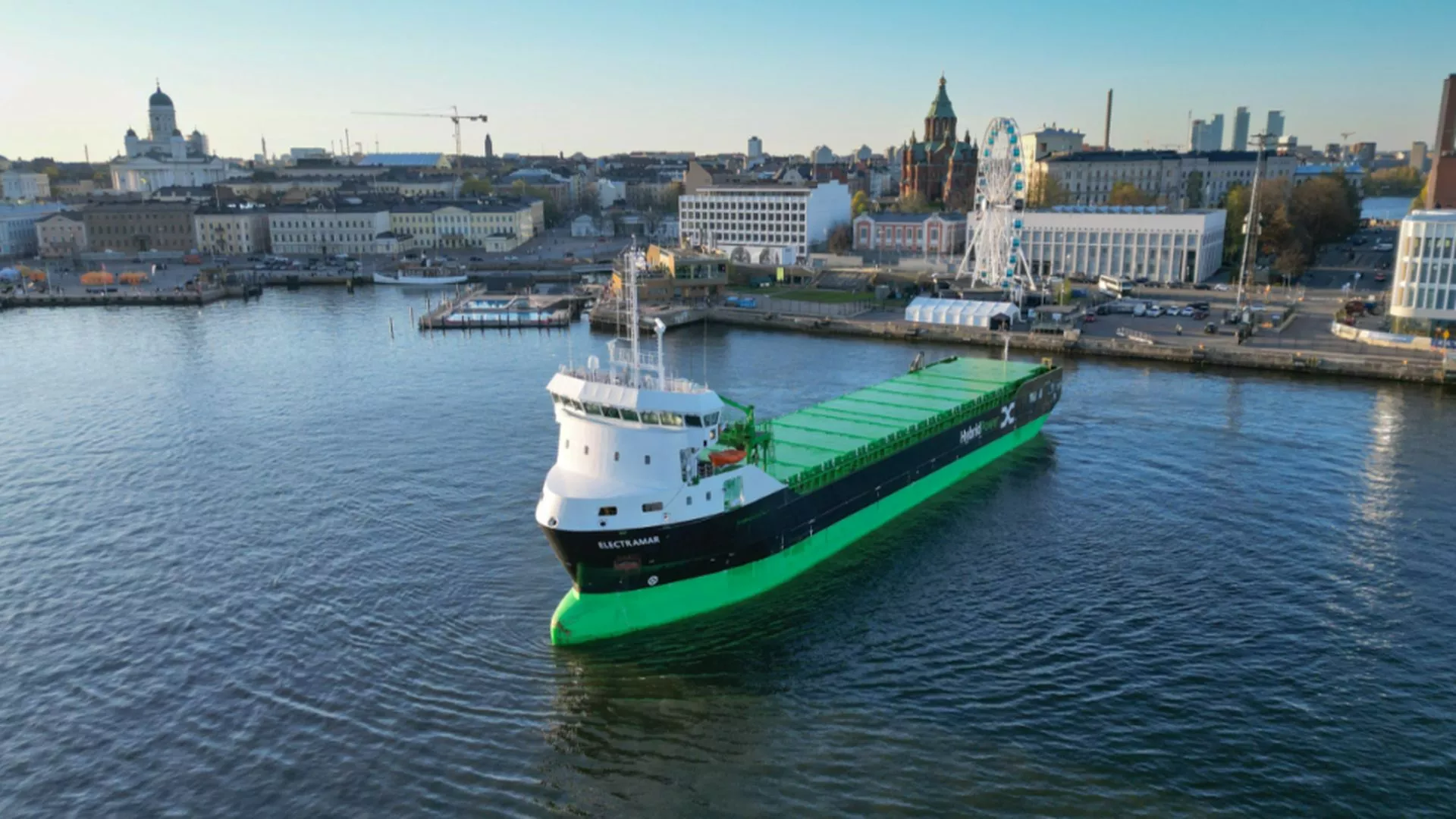




To achieve a 55% reduction in CO₂ emissions by 2030 compared to 1990, in line with EU and Dutch targets, the port needs to reduce a total of 9.3 million tonnes of CO₂ by 2030. Ongoing projects at the port, involving industry, the Port of Rotterdam Authority and its partners, are projected to reduce emissions by 8.1 million tonnes by 2030.
The port authority highlighted that the capture of CO₂ and the cessation of the use of coal in electricity production, together with the production of biofuels and future CO₂ capture and storage projects, such as the Porthos project, as well as hydrogen-based initiatives, will be key to meeting these objectives.
The commitment of the Port of Rotterdam
This transition towards more sustainable practices in one of the world’s largest and busiest ports shows the potential for heavy industries to adapt and lead in the fight against climate change. The Port’s transformation not only improves its sustainability, but also sets a model for other ports and industrial sectors to emulate, highlighting the importance of investment in clean technologies and collaboration between sectors.
Follow us on social networks and don’t miss any of our publications!
Inspenet.com YouTube LinkedIn Facebook Instagram X
Source: offshore-energy.biz
Photo: shutterstock



